The images below are scans of the last letters exchanged between Pat Anson (Beate Einstein) and her parents Isak and Ida. You can click on each image to view an enlarged version.
The English translation for each letter is included below.
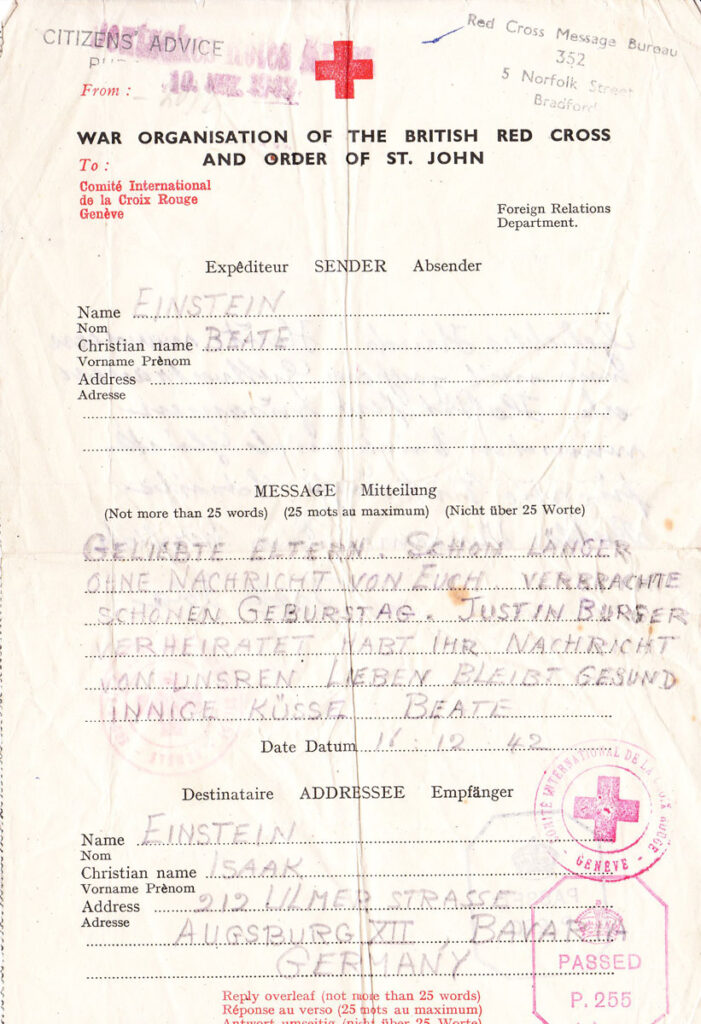
On 11TH December 1942 Beate writes;
Beloved Parents,
It has been some time since we last heard from you.
I had a nice birthday – Justin Burger got married.
Have you any news from our loved ones.
Stay well,
Tender Kisses,
Beate
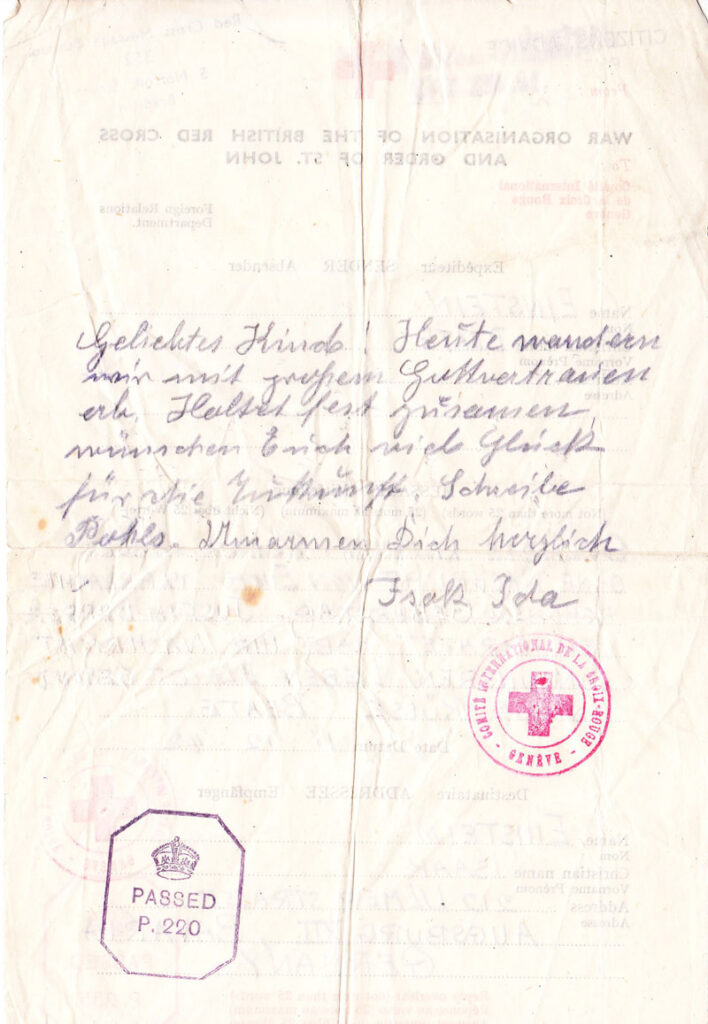
Beate’s parents respond – undated letter, but date of Deportation is confirmed as 8th March 1943
Beloved Child,
Today we migrate/leave (code for deported) with great trust in God.
Keep close bonds with each other.
We wish Erich (Beate’s boyfriend) all the best for the future.
Write to the (our neighbours) the Pols next time.
We hug you lovingly,
Isak and Ida
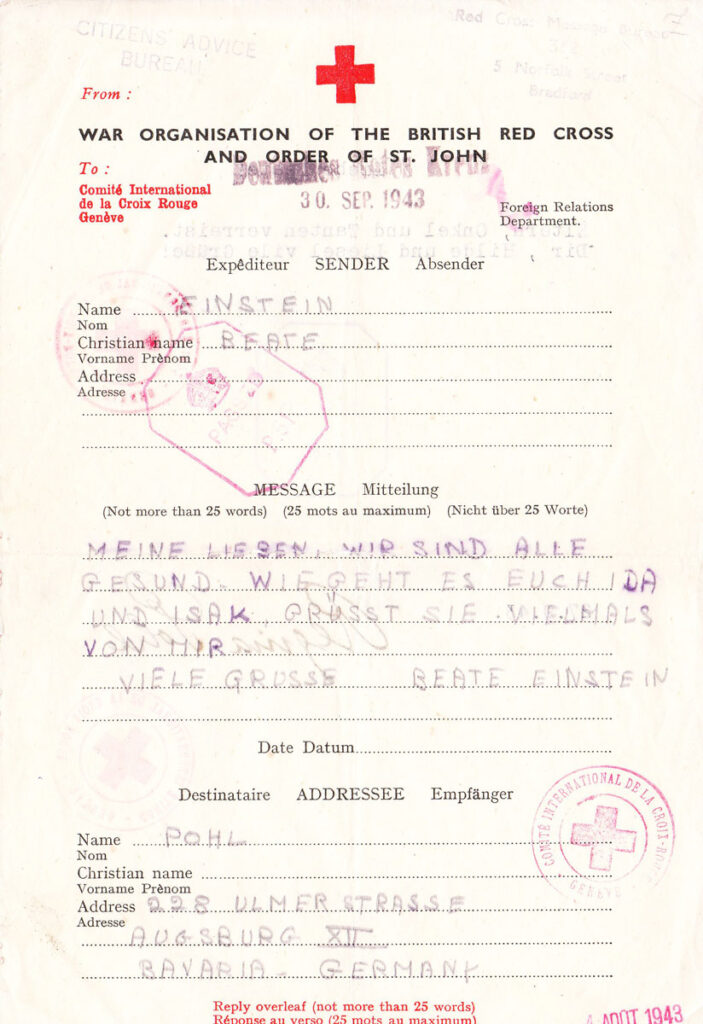
Beate writes to the neighbours the Pohl’s (no date)
My dear,
We are all healthy
Have you any news about Ida and Isak
Best greeting and best wishes from me
Kind regards,
Beate
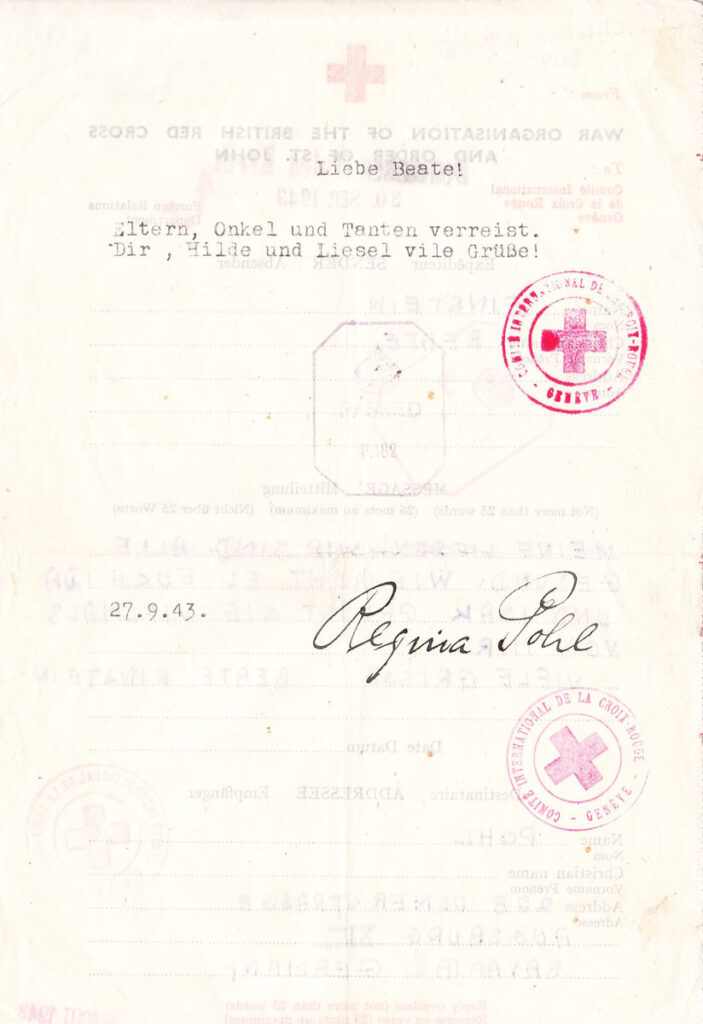
Regina Pohl replies on 27th September 1943
Your parent, Uncle and Aunt have gone away on holiday (code for deported)
Give Hilde and Liesel my best wishes,
Regina Pohl
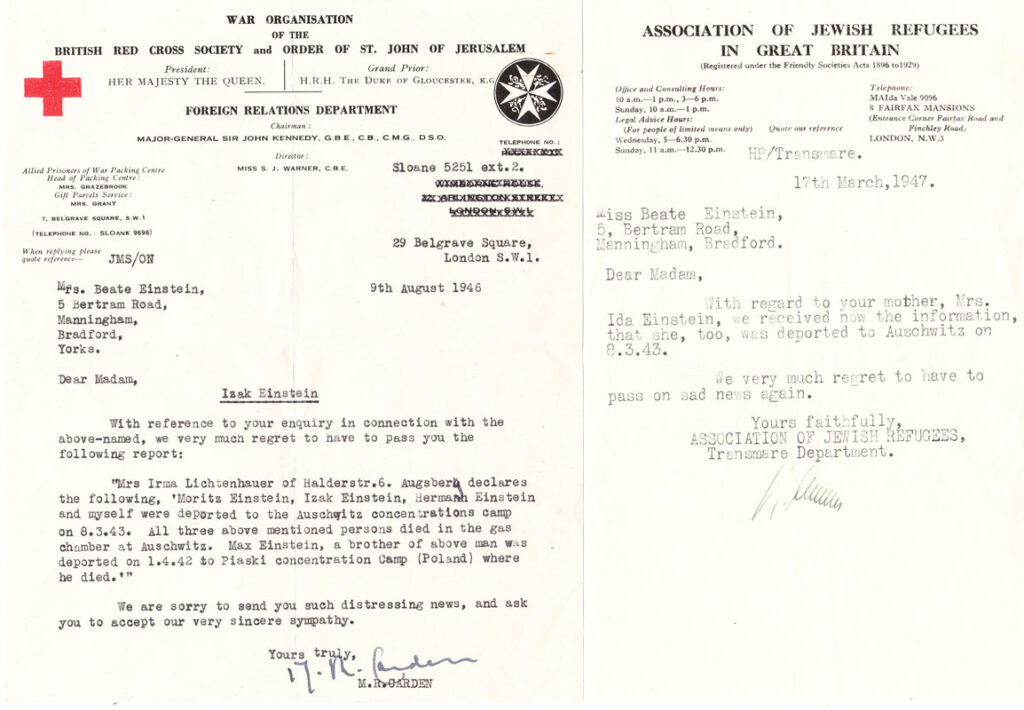
The Red Cross letter confirming the tragic news of Beate’s parents death at Auschwitz.

